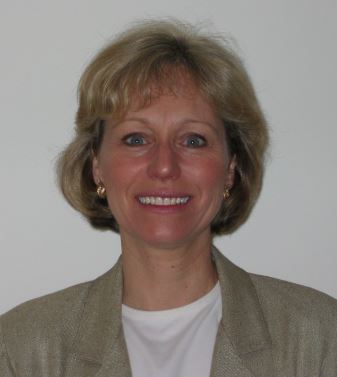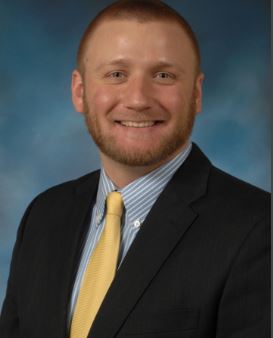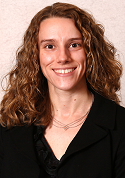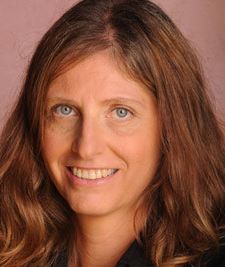TUE 1 NOV // 8:00 AM – 5:30 PM
Primary Content Focus: Technology (e.g. prosthetics/orthotics, robotics, assistive technology)
Secondary Content Focus: Brain Injury, Clinical practice (assessment, diagnosis, treatment, knowledge translation/EBP), Stroke
This course will present research findings of novel technologies for rehabilitation, provide a forum for discussion, and allow attendees to have in-depth, hands-on interactions with the technologies and industry leaders. Virtual reality technologies, robotics, and phone/tablet apps will be featured and demonstrated by researchers and companies. Informative lectures on the latest research findings will complement a round-robin format of product demonstrations. Leaders in the field of rehabilitation technology will present and lead discussions on topics such as FDA approval, partnering with industry, and effective use in the clinic.
LEARNING OBJECTIVES
- Discuss 2 clinical applications for a rehabilitation technology that is currently in development or on the market
- Identify three barriers to implementation of the described technologies in clinical practice and three potential solutions to overcome the barriers
- Describe a client population or diagnosis that would benefit from at least 1 new technology and how a specific rehabilitation practice could be improved.
KEY WORDS
- Assistive Technology
- Virtual Reality
- Intervention
FACULTY
Rachel Proffitt, OTD, OTR/L
Assistant Professor, University of Missouri
Dr. Proffitt is Assistant Professor in the Department of Occupational Therapy at the University of Missouri. Her research focuses on developing, testing, and implementing virtual reality-based interventions for adults and older adults with neurological conditions. Dr. Proffitt has extensive experience working in an interdisciplinary setting with computer scientists and engineers and was previously the Director of the Game Based Rehab Lab at the Institute for Creative Technologies at the University of Southern California (USC). She was also previously Assistant Professor of Clinical Occupational Therapy in the Mrs. T.H. Chan Division of Occupational Science and Occupational Therapy at USC. Upon completion of her OTD at Washington University School of Medicine, Dr. Proffitt sought to further her research training through a postdoctoral fellowship. She was awarded a T32 fellowship and received broad training in research methods for efficacy and effectiveness trials in rehabilitation. As faculty in the Mrs. T.H. Chan Division of OS & OT, Dr. Proffitt began mentored career development training through a K12 Rehabilitation Research Career Development Program. Here at Mizzou, Dr. Proffitt will continue her research efforts and conduct several studies examining the mechanisms of her VR interventions in order to ultimately determine how these interventions impact motor and cognitive performance of adults with stroke.
 Susan Fasoli, OTR/L
Susan Fasoli, OTR/L
Associate Professor, MGH Institute of Health Professions
Dr. Fasoli is an experienced occupational therapist with research expertise in neuro-rehabilitation and the use of technology to remediate impairments in upper limb motor function. She first became involved with rehabilitation robotics during a post-doctoral fellowship in the Newman Laboratory for Biomechanics and Human Rehabilitation at MIT, and has worked closely with engineers and neuroscientists since that time on the design and implementation of robot-assisted therapy for adults and children with upper limb impairments due to stroke and cerebral palsy. Her strong experience in the use of rehabilitation robotics, outcome assessment, and clinical practice provides a unique ability to critically appraise the potential benefits and limitations of this technology for older adults with neurologically-based motor impairments.
 Matthew Foreman
Matthew Foreman
PhD Candidate, Washington University School of Medicine
Mr. Foreman is a PhD candidate in Rehabilitation and Participation Science (RAPS) through the Program in Occupational Therapy at the Washington University School of Medicine. He is also a mechanical engineer performing research in the Human Performance Laboratory (HPL) at Washington University under the mentorship of Dr. Jack Engsberg. In his research at the HPL, he has gained experience writing control software and processing data for rehabilitation technologies that include motion capture cameras, force sensors, and electromyography. His dissertation research focuses on using off-the-shelf motion sensors (Microsoft Kinect) to measure compensatory movements during reaching tasks for persons with stroke. This method will be controlled by custom software and used to control a variety of virtual environments as a basis for a motivating, personalized virtual reality-based intervention for persons with chronic stroke.
 Lynne Gauthier, PhD
Lynne Gauthier, PhD
Assistant Professor of Physical Medicine and Rehabilitation, The Ohio State University
Dr. Gauthie is an Assistant Professor of Physical Medicine and Rehabilitation at The Ohio State University Medical Center. Dr. Gauthier earned her PhD in Medical Psychology at the University of Alabama at Birmingham, completing her dissertation work in the laboratory of Dr. Edward Taub, and completed her clinical internship in Behavioral Medicine at Brown University. Dr. Gauthier is known for her research on how the brain reorganizes following stroke and how rehabilitation can facilitate this reorganization. She is also pursuing research on consumer-technology-based interventions that can increase access to effective interventions and enhance carry-over of rehabilitation to daily activities. Her goal is that this research will improve quality of life by providing clients with low-cost access to effective therapies.
 Son Preminger, PhD
Son Preminger, PhD
Founder and CEO, Intendu Ltd.
Dr. Preminger is an assistant professor of psychology at the Interdisciplinary Center (IDC) Harzliya as well as the founder and CEO of Intendu, a b corporation that develops cognitive rehabilitation software. Her research focuses on executive functions, the underlying brain mechanisms and their plasticity. In her research, she focuses on researching the effect of experience on executive functions and in studying the efficacy of cognitive training in health and brain dysfunction. Her research methods include behavioural training, functional brain imaging (fMRI), and electrophysiology (EEG). She has developed and studied a computerized programs for enhancement of self-initiation, a method for cognitive rehabilitation using theater improvisation and a method for creativity enhancement. Her research resulted in publications in leading international neuroscience journals. Intendu, which is a socially-driven company, provides cognitive training solutions for cognitive rehabilitation clinicians and for people with brain impairments in their home environment. Dr. Preminger completed her post-doctorate and PhD studies in Neuroscience at the Weizmann Institute. She holds a MSc in Computer Science from the Weizmann Institute, a BSc in Mathematics from Tel Aviv University, and an MBA from Harvard University.
One full day of Instructional Courses: $199 // Three full days: $399
WORLD PASS (from $599) is the best value if you attend the CORE Conference and just one instructional course.
CLICK HERE for pricing detail.
CONFERENCE HOME PAGE >>>
ALL PRE-CONFERENCE COURSES >>>
*Although significant changes are not anticipated, all schedules, sessions, and presenters posted on this website are subject to change.










